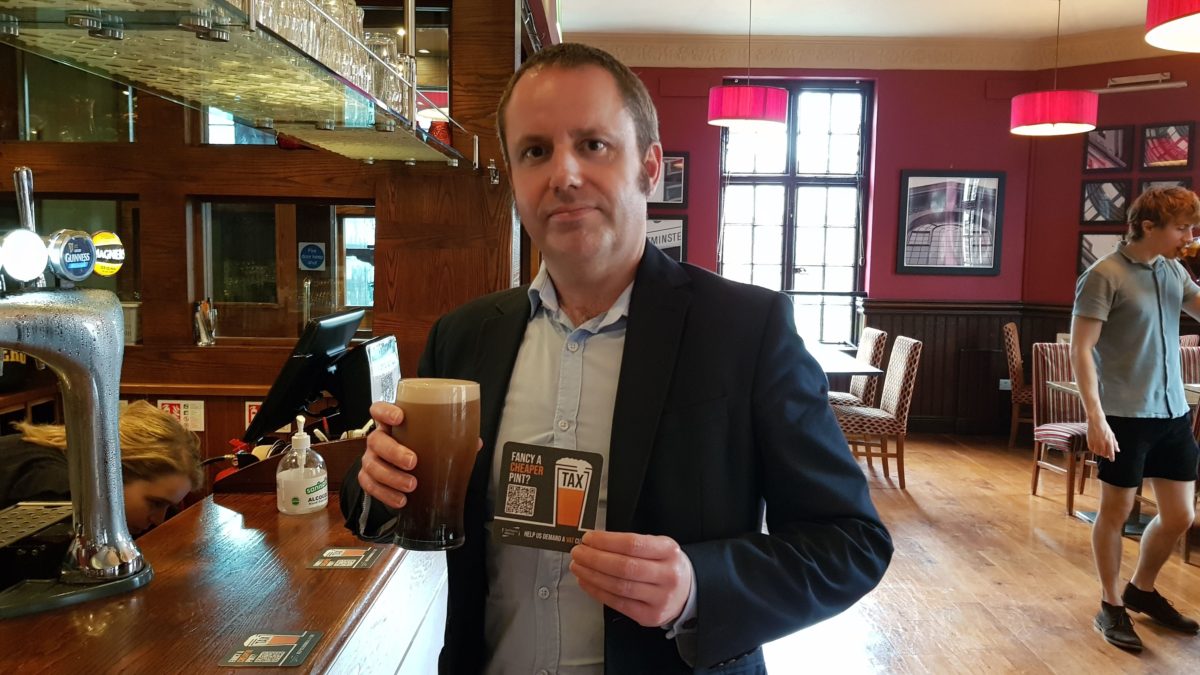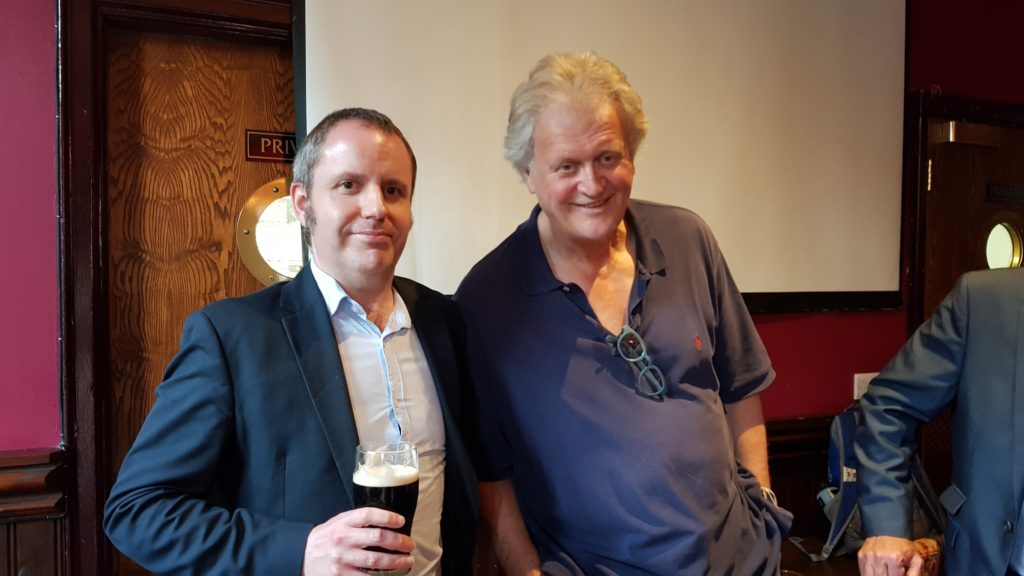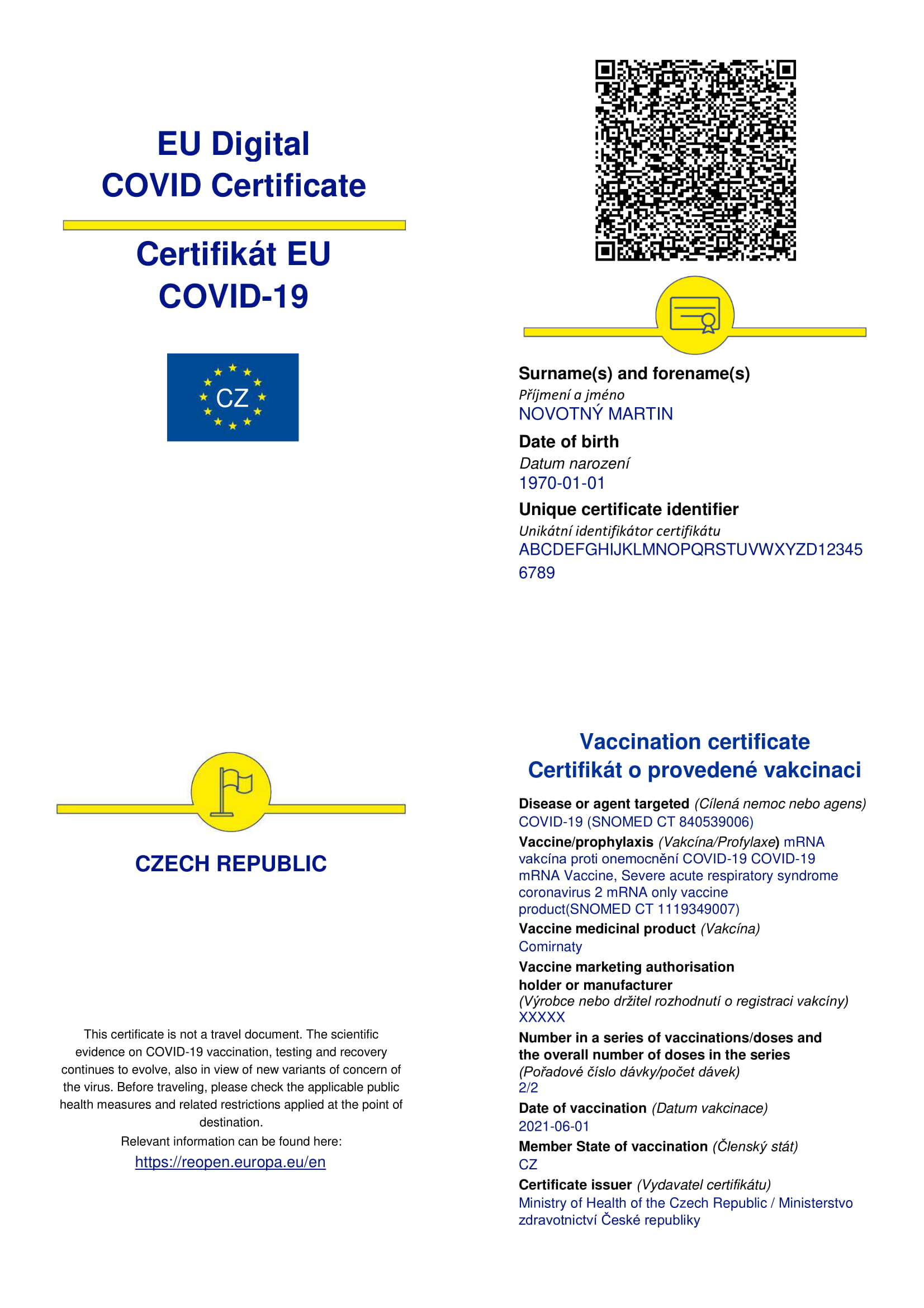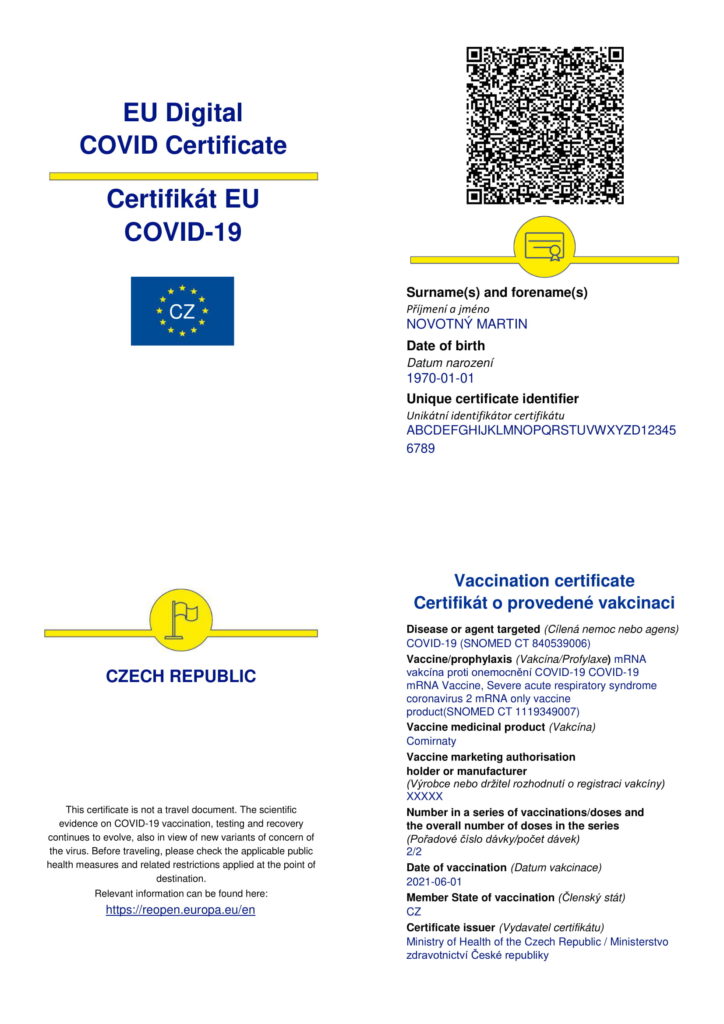Across the North Sea, the Kingdom of Norway with it’s Scandinavian welfare state and history of Vikings is not the first place you associate with libertarians. However the International Alliance of Libertarian Parties does have a representative from the land of the fjords. The Capitalist Party (Liberalistene) (Wikipedia), advocates for a minimal state and free market economics. We speak with Deputy Chair Political, Roald Ribe about the party.
Roald thank-you for your time.

Could you tell our readers about your party?
A huge mix of value-liberal, classical liberal, libertarian, minarchist, anarchist, laissez-faire, individualism oriented capitalists. Common ground is typically no rulers, less government, less laws and regulations, less tax, less bureaucracy, less politicians and so on. Unyielding on principles, on property rights and self-ownership, but flexible on speed of implementation. It will take time to provide enough people with enough knowledge to let them realize that they want anything to change, or to recognize the fact that a better society could and can exist. Our political programs are evolving significantly over time (7 years so far) to reflect that fact, and to try to factor some acceptance of the Overton Window into them and the general communication with potential members and voters. Our name in Norway is Liberalistene. In English the name is Capitalist Party. Where Laissez-faire is implicit in the name.
“Getting representation for a classical liberal ideological base into the public view, always insisting on less state, less taxes, less power to politicians and bureaucrats, gets our membership (and me) excited”
What are main issues in Norway you campaign on, what gets Libertarians excided?
We have distinct political programs covering most issues on three political levels (all) in Norway. Three levels seems a bit much for just over 5 million people, so we will try to merge the two lower into a local level, and the other a national level like today. As a start. All the “established” parties in Norway, those who are represented in parliament most of the time, seem to agree that there is no maximum size for the state in the economy. Creating a heard voice, a rallying point, recognised representatives of the opposite view, is task number one. Getting representation for a classical liberal ideological base into the public view, always insisting on less state, less taxes, less power to politicians and bureaucrats, gets our membership (and me) excited.
Your country has stayed out of the EU, but what’s your parties view of the EU and the Euro?
The population in Norway has voted against joining the EU twice. Political representatives in parliament still slipped Norway in, through the small back door named the EFTA, with no asking the population again first. Probably because they expected that the answer would be the same as for the EU. So, we are part of the EU, but “only” through the EFTA. There is a majority for it in Norway it seems (EFTA), because voters have bought the political dogma that Norway “needs” such a deal to sell oil, gas, fish, electrical power and other unrefined and raw materials into the EU area or other parts of the world. It will not take much free market knowledge to realize that this is an outright lie. So, we are in the EU, but with no influence. Our party would strongly prefer for Norway to be out of that situation.
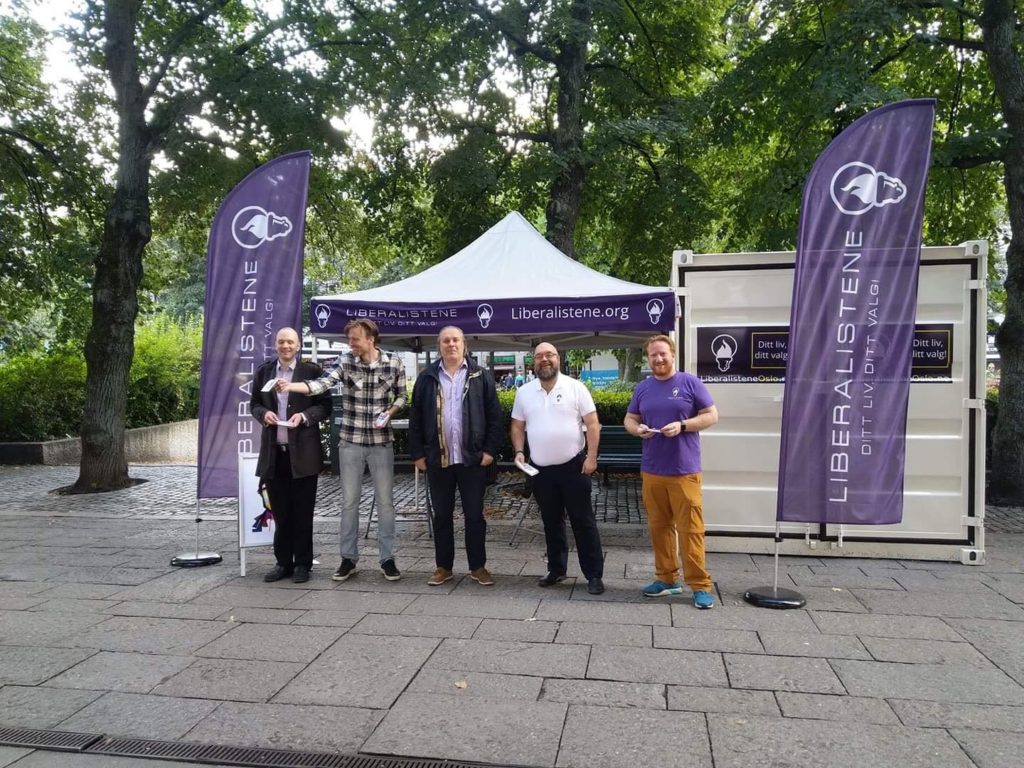
Different countries campaign in elections in different ways, what methods does your party focus on, and do you have any interesting stories from the campaign trail?
Our next national election for parliament is in this year, 2021. So we are in the middle of preparing for it now. The formal election campaign lasts from 10. August till the election day 13. September. Most significant boost in this election campaign is that a former Minister and MP with 20 years of experience in parliament, has joined our party. Mr Per Sandberg used to be Deputy Chair of the Progress Party, but has now upgraded himself ? to the top election candidate for Liberalistene in the Oslo and Finnmark election districts. This has not gone unnoticed in the media, and through his activities combined with our steadily increasing experience with media handling and election processes and campaigns, we get a lot more attention and traction in the media than we have been used to this far.
In addition to the constant hard work leading up to being taken seriously enough to be joined by an established political figure, campaigning is done in various physical forms. Branded stands in streets where we have enough active people to swing it. Talking to people, distributing brochures. In some less urban areas we are getting a lot of brochures distributed straight into mailboxes by single activists. We try to write opinion pieces for different news media, and we are getting better at it. With a couple of pre-qualified celebrities in our ranks, it is getting somewhat easier to get the party included in the media.
At this point in time we do not have the capacity to make a trail of it. In the locations where we have enough active personnel, they organise their own plans and activities in their area, basing the plan on their own assessment of when, how and what kind of effort can be realized by them, and what they think will be most effective there. The central / national organization is mostly a service and materials provider, making brochures and flyers available, ordering tents, flags and other materials in ways that makes it affordable and available for as many as possible.
“It will be interesting to see what kind of trade relations the UK develops with the world going forward by itself outside of the EU. If the UK is successful with that work, as I expect it to be, it may undermine the solid political EFTA support in Norway, which would be perceived as a good thing by our party”
Do you have any views on UK politics you can share?
I think your country did well to finally get the Brexit process into motion, but I expect that the usual suspects will drag their feet and silently sabotage it as much as possible. It is nice to observe that some of your political figures seem to wise up a bit on lockdown policies. It is about (bleeping) time… It will be interesting to see what kind of trade relations the UK develops with the world going forward by itself outside of the EU. If the UK is successful with that work, as I expect it to be, it may undermine the solid political EFTA support in Norway, which would be perceived as a good thing by our party. We hope our countries will continue to uphold the traditionally good relations between them, and continue to work for the best possible conditions for cooperation between the two populations, including as much free trade as possible.
If you could introduce, repeal or change 3 laws what would they be?
A law securing absolute property rights, protecting all possible value from coerced confiscation, especially from the government.
A new law securing negative rights only for individuals exclusively, abolishing any and all privileges given in law to any individual or group.
A new law to require that at least two old laws must be removed for new or changed to be introduced.
“Governments have lost their last marbles if it ever had any, and are flushing down the economic future of many in a hole full of dirty, irrational, fear mongering. The only way to counter this is to provide more individual freedom and economic freedom for business”
Lastly how do you think your government is handling the Covid-19 crisis, and what would you like to done to help the economic recovery?
Lockdown is a travesty against citizens, especially those in the low income bracket. The only rational strategy out there seems to be The Great Barrington Declaration. Governments have lost their last marbles if it ever had any, and are flushing down the economic future of many in a hole full of dirty, irrational, fear mongering. The only way to counter this is to provide more individual freedom and economic freedom for business. Failure to do so should eventually be punished by quite a few voters. In that path, where we expect more voters to arrive eventually, is where libertarian efforts should loudly position themselves. But remember, voters go where they believe is right, not where you think they should. We must make it our business to find the points where those two often differing views coincide with each other, well in advance of voters arriving there.
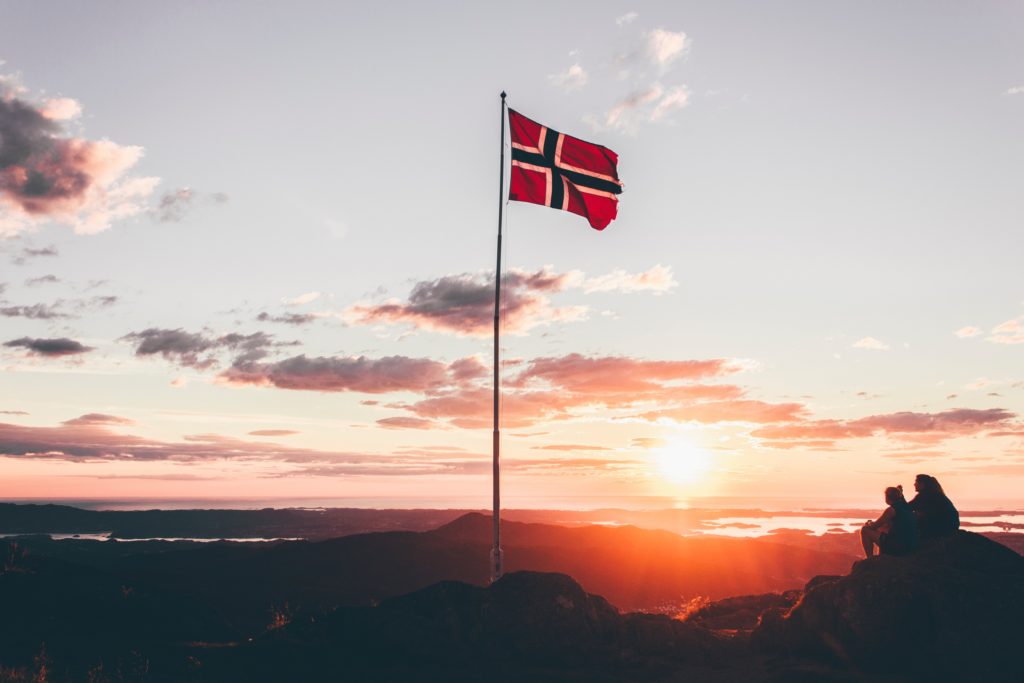
The Capitalist Party can be found online at https://www.liberalistene.org/ on Facebook at https://www.facebook.com/CapitalistPartyOfNorway, and Twitter at https://twitter.com/Liberalistene. They are also on email at [email protected].


